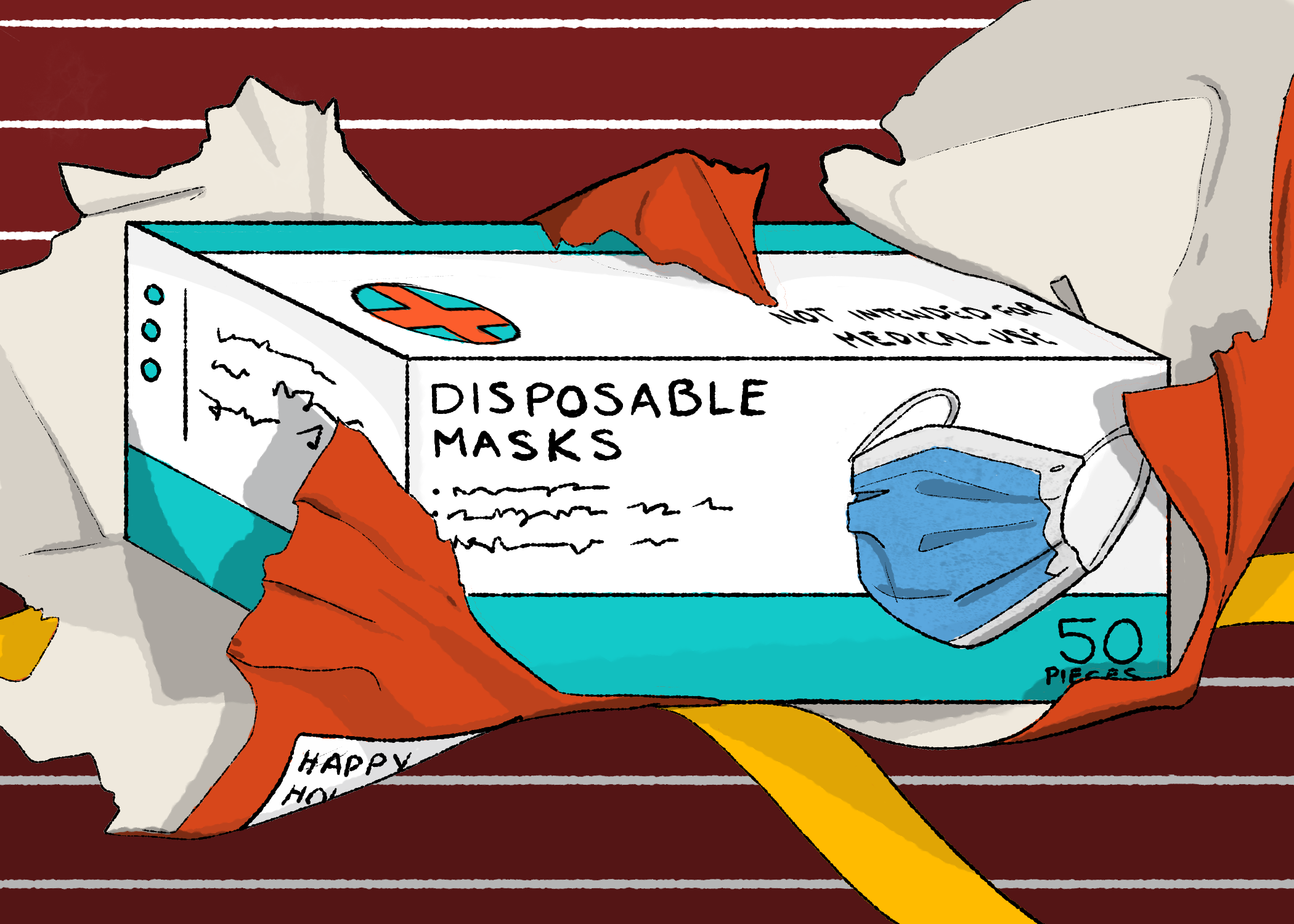#FocusDisruption is a collaboration of all the media outlets within Montclair State’s School of Communication and Media. Our goal is to report stories that highlight the effects or disruption of the coronavirus (COVID-19) pandemic. We will be focusing on five main points that are experiencing the changes of a post-pandemic world: education, misinformation, the workplace, climate change and mental health.
The coronavirus (COVID-19) pandemic has infiltrated our holiday season and changed it in ways we’ve never seen before. This holiday season marks the second year where COVID-19 has been around.
The holidays last year were very different from the past. We were nervous about the pandemic and how it was infecting people at a faster rate. Since the onset of COVID-19, the holidays just don’t feel the same.
Holidays, in general, can be pretty stressful. But, most people don’t realize the mental toll holidays can have on others.
According to Therapist Corner, around 40% of people find that the holidays make their mental health somewhat worse. In that number, 68% of people found they were feeling financially stressed while 66% reported feeling lonely.
Many people have decided to spend the holidays on their own instead of risking exposure, leading them to feel isolated and alone. The feeling of loneliness can affect one’s mental health and create a negative holiday season atmosphere.
For those who don’t have a tightknit family and spend the holidays alone, the season can be hard for them. Not being around loved ones when it seems like the rest of the world is can be detrimental to someone’s mental state.
Adding on to the feeling of isolation, many face seasonal depression. Seasonal depression is a wave of depression and hopelessness during the colder months, due to the lack of sunlight. Dealing with seasonal depression can make the winter holidays dreadful for many.
The stress of who to invite to holiday dinner can also contribute to the gloomy holiday atmosphere. Many people who have immunocompromised family members find themselves under even more pressure to keep the holidays safe. Having a family gathering without a certain family member can be upsetting, especially if you are close with the person missing out.
As someone who was constantly cautious because of grandparents, it can be a tough call. It’s a heavy choice to decide if you want them to come and be at risk, or stay home to keep safe.
Before the pandemic, a lot of the stress came from not wanting to have those uncomfortable conversations with family members you barely know or just not wanting to spend the holidays with your family at all. Now, the worry of someone spreading or catching COVID-19 can cause the holidays to lose their normal excitement and cheer.
Although this year’s safety protocols are a little less scary and more mellow than the last thanks to the vaccine and low case numbers, festivities can still be intense.
Vaccine debates can be a further cause for turmoil at family events. A lot of people have started to ask their guests to be vaccinated if they want to attend.
This scenario has repeated at weddings, parties and now holiday parties. Asking people who are against the vaccine to get vaccinated for an event can be tough and create tension between families.
Additionally, many don’t realize that not everyone adores the holiday season, either. Hearing the constant “Merry Christmas” or “Happy Holidays” can cause those who are suffering from poor mental health surrounding the festivities to feel even worse.
Even though this holiday season might be stressful due to COVID-19, there are many ways to push through.
Those suffering with their mental health can find help in many places. Montclair State University has its own Counseling and Psychological Service (CAPS) for students to use. As for a hotline, you can call the Substance Abuse and Mental Health Services Administration (SAMSHA) at 1-800-662-HELP (4357).



